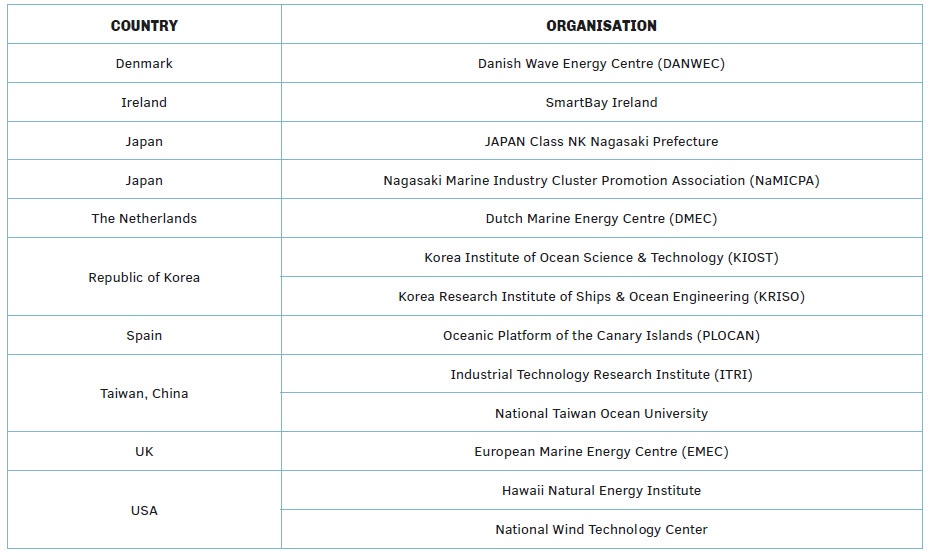Open Water Testing
Open sea test centres have become a common step in developing an ocean energy industry in countries across the world and are a key milestone in the development of an industry in a region: when technology is advanced enough, a country often seeks to develop an open sea test centre to progress it further. This approach is favoured by public funders as it is an efficient use of public funds, and by technology developers for the reasons outlined above. Open sea test centres are key innovation hubs for the marine energy industry and provide many functions which support its development. These include reducing costs for technology developers and streamline testing programmes; breaking down regulatory barriers such as consenting; developing a regional supply-chain; providing a platform for engaging with decisions makers, investors, media etc.; accelerating knowledge sharing; and many more.
In 2012, OES organised a first workshop in Dublin with open water test site operators and device developers to exchange information and experience on all aspects of planning, development, operation, and usage of open water test facilities. The aim of this workshop was to identify improvements in the capabilities of these facilities for the mutual benefit of the ocean energy industry. Following this initiative, in 2013, the European Marine Energy Centre (EMEC) set up the International WATERS (Wave and Tidal Energy Research Sites) Network, which provides a forum for open sea tests in the marine energy space to discuss common challenges, explore collaboration opportunities and reduce duplication of efforts and resources.
As a way of enhancing the outputs from the WATERS group and connecting it with the wider development of the sector, in 2018, OES supported the workshop in Taiwan organised by EMEC and hosted by the National Taiwan Ocean University.
There are many open sea marine energy test sites established across the world and each has its own challenges, such as consenting issues, resource and operating environments. Test centres also provide very different service offerings to industry. Despite these differences, many are facing the same challenges on a day-to-day basis. The International WATERS network has been an efficient way to share and learn from challenges of other test centres, explore potential collaborations, and discuss how best to meet the needs of industry. The workshop in Taiwan, China aimed to share updates on progress and challenges from facilities around the world; to identify common test site challenges and opportunities; to provide a forum to discuss key R&D topics; and to identify actions to forge relationships and knowledge transfer among test sites.
Countries and institutions present in the workshop on test sites (TAIWAN, CHINA, SEPTEMBER 2018)
 |



